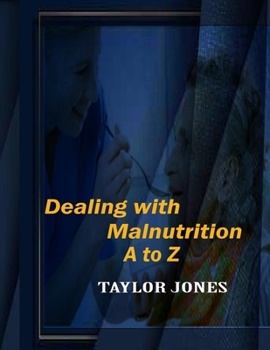Dealing with Malnutriction A to Z: General Treatments for Malnutrition
Addressing malnutrition is a multifaceted endeavor that encompasses a wide spectrum of nutritional challenges, ranging from undernutrition to overnutrition, with a multitude of complex factors at play. It involves a comprehensive approach that seeks to ensure adequate and balanced nutrition for individuals across different age groups, socioeconomic backgrounds, and geographic locations. The process of dealing with malnutrition requires a combination of education, intervention, policy reform, and collaboration among various stakeholders. At its core, dealing with malnutrition involves understanding the diverse factors contributing to its occurrence. These factors can vary from inadequate access to nutritious foods and lack of nutritional education to socioeconomic inequalities and cultural practices. Efforts to combat malnutrition require a deep awareness of these intricacies and a commitment to tailoring interventions to specific contexts. A crucial aspect of dealing with malnutrition is the recognition that both undernutrition and overnutrition pose significant health risks. While undernutrition deprives individuals of essential nutrients needed for growth and development, overnutrition leads to an excess intake of calories and unhealthy foods, contributing to obesity and related chronic diseases.
To effectively tackle malnutrition, a multi-pronged strategy is essential. This strategy includes promoting education about balanced diets, advocating for policies that improve food accessibility and affordability, ensuring access to clean water and sanitation, and encouraging healthier eating habits. Additionally, healthcare interventions, nutritional supplementation, and support systems are pivotal in addressing malnutrition-related health issues.
To effectively tackle malnutrition, a multi-pronged strategy is essential. This strategy includes promoting education about balanced diets, advocating for policies that improve food accessibility and affordability, ensuring access to clean water and sanitation, and encouraging healthier eating habits. Additionally, healthcare interventions, nutritional supplementation, and support systems are pivotal in addressing malnutrition-related health issues.
Format:Paperback
Language:English
ISBN:B0CH23XWKW
ISBN13:9798859838189
Release Date:September 2023
Publisher:Independently Published
Length:40 Pages
Weight:0.26 lbs.
Dimensions:0.1" x 8.5" x 11.0"
Customer Reviews
0 rating





